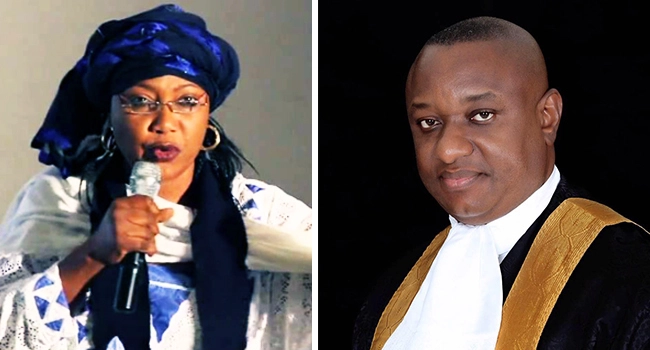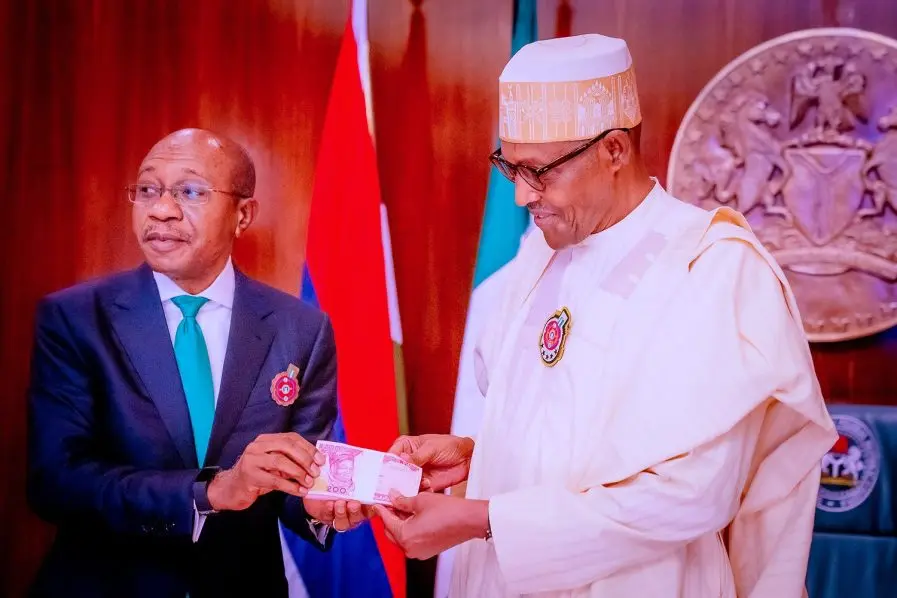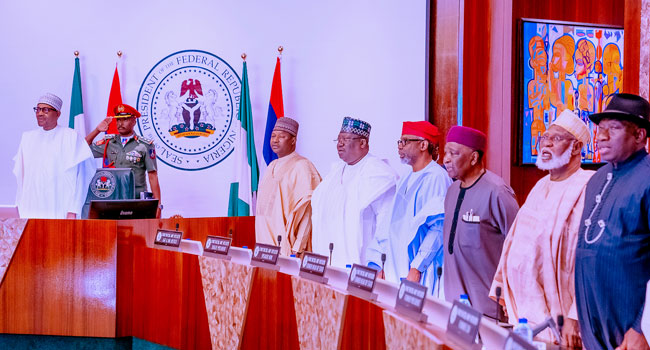Electoral Act: Supreme Court Strikes Out Buhari’s Suit Challenging Section 84(12)
Written by darling on June 24, 2022
The Supreme Court on Friday struck out President Muhammadu Buhari and the Attorney General of the Federation’s suit challenging Section 84(12) of the Electoral Act.
The case was expunged on the grounds that it lacks the jurisdiction to entertain the suit and is an abuse of court process.
Earlier, a notice for the judgment delivery was served on President Buhari and the National Assembly on Thursday, inviting them to appear before the court today for the judgment.
The President and his Minister of Justice, Abubakar Malami, had filed a suit at the Supreme Court, seeking an interpretation of the controversial clause in the Electoral Amendment Act 2022.
In the suit filed on April 29, Buhari and Malami, who are the plaintiffs, listed the National Assembly as the sole defendant.
There have been several debates regarding Section 84(12) of the amended Electoral Act 2022 which was assented to in February.
Upon assenting to the act, President Buhari had asked the National Assembly to delete the contended clause, however, the parliament declined the president’s request.
Section 84 (12) of the legislation holds that, “no political appointee at any level shall be a voting delegate or be voted for at the convention or congress of any political party for the purpose of the nomination of candidates for any election.”
In their suit marked SC/CV/504/2022 and filed on April 29, 2022, President Buhari and Malami sought an order of the apex court to strike out the section of the Electoral Act, which they argue was inconsistent with the nation’s constitution.
According to the court document, the plaintiffs contend that the Section 84(12) of the Electoral (Amendment) Act, 2022 is inconsistent with the provisions of sections 42, 65, 66, 106, 107, 131, 137, 147, 151, 177, 182, 192 and 196 of the Constitution of Federal Republic of Nigeria, 1999, (as amended), as well Article 2 of the African Charter on Human and People and Peoples Rights.
The plaintiffs further contended that the constitution already makes provisions for qualification and disqualification for the offices of the President and Vice President, Governor and Deputy Governor, Senate and House of Representatives, House of Assembly, Ministers, Commissioners and Special Advisers.
They urged the Supreme Court to make: “A declaration that the joint and or combined reading of the section 65, 66, 106, 107, 131, 137, 147, 151, 177, 182, 192 and 196 of the constitution of the Federal Republic of Nigeria, 1999, (as amended), the provision of Section 84 (12) of the Electoral Act, 2022 which also ignores Section 84(3) of the same Act, is an additional qualifying and/or disqualifying factors for the National Assembly, House of Assembly, Gubernatorial and Presidential elections as enshrined in the said constitution, hence unconstitutional, unlawful, null and void”.
However, in its decision on Friday, the Supreme Court held that President Buhari having assented to the bill on February 25 2022, can not turn around to challenge same act .
In a unanimous judgement delivered by Justice Emmanuel Agim the court said allowing the suit to have it’s way will amount to approbating and reprobating at the same time and no court of law shall allow that.
The Apex Court unanimously agreed that President Buhari lacked the jurisdiction to bring the suit before it because of the nature of the reliefs sought.






